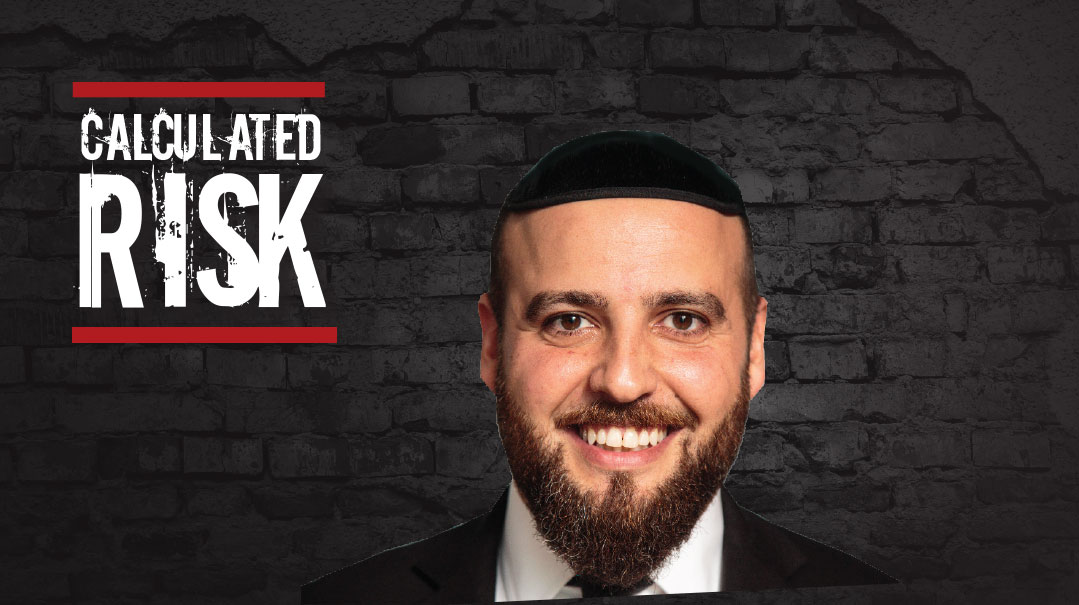“My Son Is Destroying Our Family!”

A confident parent isn’t afraid of the question and therefore doesn’t panic
Hey Rabbi,
My 15-year-old son Meir is destroying our entire family. He breaks Shabbos and talks about all kinds of secular things that are totally inappropriate. My other kids complain that he gets away with doing whatever he wants and get resentful that they have to follow the rules. I feel like I have a terrorist living in my house!
This is probably one of the most common questions I get.
But it’s tricky to answer, because the dynamics of every situation are different. A rav or therapist should be consulted regarding the specifics of your situation.
When you look at the question, you can feel this parent’s fear. They are terrified that Meir is taking over their household and ruining their other kids. That’s an indication of a larger problem — an imbalance in the family hierarchy.
Parents must first and foremost be confident. Confidence in parenting doesn’t mean that you always do the right thing or even know what the right thing to do is. Confidence in parenting means having confidence in the time and love that you have invested in the relationships and values that exist in your home.
That love and connection is what gives you the power to create and maintain order within the family. If the hierarchy of the family is being challenged, creating an imbalance of power, that’s not the fault of the child who is acting out. He or she is just shining a light on the fact that they can (and do feel a need to) rebel.
When the unconfident parent is challenged, their reaction is fear. Fear that this child can topple everything by pointing out what the parent knows but does not want to admit — there is no one at the helm of this ship. Anyone, at any time, can take the wheel and steer. Therefore, the challenging child (or anyone else in the world who has a different opinion from the parent, for that matter) poses a threat.
That fear will drive the parent to try to take back control and neutralize the threat. But without the power of love and communication, the parent typically resorts to shame and blame. These tactics never work. They will just cause the child’s behavior to get worse.
A word on exposure: It is impossible to forever protect your child from being exposed to ideas that you don’t agree with. The good news is that just because your child is exposed to something negative doesn’t mean they will immediately pursue it — even if it’s appealing or looks like fun. But being exposed can cause a child to want those pleasures if the child is uncomfortable at home, feels insecure at home, or their home experience is otherwise not positive. If a child is happy, content, and secure with the lifestyle his parents model, exposure to the outside world (even through a sibling who is “getting away with it”) will not destroy that.
With that said, let’s discuss solutions.
Meir presents a negative influence toward your other children. Negative influences need to be tackled on several fronts simultaneously.
- Communication. You need to have open and honest conversations with your children about what their struggling sibling is going through, in terms they can understand.
- Happy home. When your children see how much love and happiness your lifestyle brings you, they’ll naturally be attracted to that lifestyle. The love and happiness need to be clear to see through your actions. Words are not enough.
- Love. This might be the most important factor. Shame and blame are the opposite of love and acceptance. Never shame a child for acting out. Never blame them when anyone else acts out, or for how their misbehavior makes you feel. Show Meir love and acceptance by showing that you understand the difficulties he’s experiencing. When you do this, you send a very clear message to your other children as well: Mommy and Abba love you no matter what. We want to understand you. We will always accept you.
When you address all these fronts, you eliminate the power of the negative influence and reinstate the hierarchy. When there is communication, a happy home environment, and unconditional love, the other children in the family will follow your lead. Like their parents, they’ll feel empathy for their struggling sibling. The things that Meir is doing will not tempt them — they’ll accurately perceive it as a woefully inadequate replacement for the love and happiness that Mommy and Abba have. These realizations grow organically as your children watch you in action and absorb your reactions and attitudes. You are the captain of the ship.
Whenever I explain this to parents, I often get this response: “Well, that’s fine for influences that I can’t control, but I don’t have to allow negative influences in my own home!”
But you’re not going to throw your own child out of the house just because you’re afraid of negative influence. You have to deal with it by communicating with your children directly. Which is not such a bad thing — where else do you want them to learn about these ideas and concepts? Where else do you want them to learn why your way of life is more beautiful and fulfilling than anything the outside world has to offer? Where, if not from your own home?
Let’s look at an example of how this might play out. Meir is smoking on Shabbos. You call your younger son Shmuly to the table to bentsh and he screams, “Why do I have to? Meir doesn’t!”
At this point, an unconfident parent panics. Help, Meir is ruining everything! So he yells at Meir, “Are you happy now?! Do you see what you’re doing?”
That reaction doesn’t answer Shmuly’s question and it doesn’t help Meir make better choices. That reaction tells Shmuly, My parents have no control over this family. It tells Meir, You are a horrible person and we wish you would just disappear. The encounter resolves nothing and leaves Meir, Shmuly, and their parents shaken, angry, and scared.
But a confident parent isn’t afraid of the question and therefore doesn’t panic. The confident parent communicates honestly and openly with Shmuly about the pain Meir is struggling with, why he’s behaving the way he does, what’s the most effective way to react to him, and how difficult this must all be for Shmuly. After such a discussion, Shmuly views himself as mature and a confidant of his parents. He also gets an invaluable lesson in love and acceptance. The encounter brings him closer to his parents, further from Meir’s poor choices, and leaves him feeling secure in his parents’ love and leadership.
When Meir acts out, that’s an opportunity to demonstrate love, acceptance, and empathy. When your other children challenge you about Meir’s behavior, that’s an opportunity for communication and empathy toward them. When you maintain your calm in the face of these challenges, you’re creating a happy home and modeling a joyful and loving lifestyle that your children will naturally be drawn to. When all these factors are in place, you restore the family hierarchy and stop reacting out of fear.
Have a question for Rabbi Bensoussan? Email info@mishpacha.com.
Rabbi Yossi Bensoussan serves as mashgiach ruchani at Yeshiva High School of Cleveland. He is a Certified Alcohol and Substance Abuse Counselor (CASAC) who currently maintains a private practice, and does motivational speaking and community education on addiction all over the US and Israel.
(Originally featured in Mishpacha, Issue 844)
Oops! We could not locate your form.







